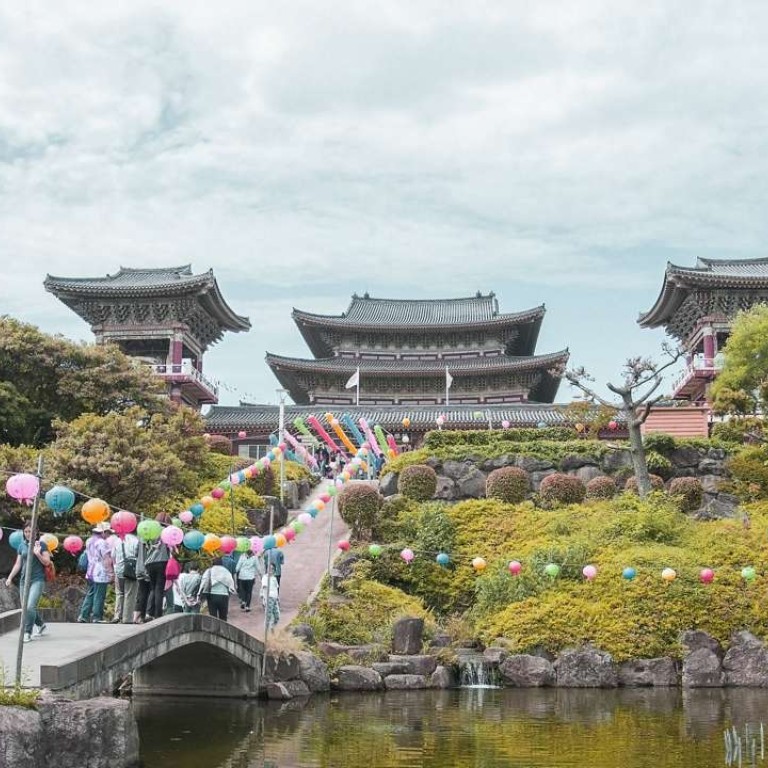
China puts economic squeeze on South Korea over US anti-missile system
Former defence ministry official brands THAAD system a threat to regional security as China stops tour groups heading to South Korea
China is stepping up economic pressure on South Korea, including bans on tour groups and a retail boycott, after a Korean conglomerate agreed to supply land for a US anti-missile defence system.
Two travel agents – one based in Beijing and the other in Guangxi – told the South China Morning Post that they were ordered on Friday to stop sending Chinese tour groups to South Korea after March 15, but tours before that date could go ahead unaffected.
Travel agencies were also ordered to stop offering all services, such as hotel and flight bookings, for individual tourists to South Korea after March 15.
Chinese cruises were not allowed to stop at South Korean ports and those who violated the rules would be punished “heavily”. The orders were relayed to travel agencies verbally, the agents said.
South Korea’s foreign ministry has said it would be “most regrettable” if China stopped its nationals from visiting as part of retaliation against Seoul’s move to host an advanced US anti-missile system.
Other retaliatory measures by Beijing include rescinding contracts between Chinese companies and Lotte, the South Korean company that agreed to supply the land for the US system, sources and mainland media reported.
Former head of the defence ministry’s foreign affairs office Qian Lihua said the deployment of the US system – the Terminal High Altitude Area Defence system (THAAD) – was a threat to regional security.
Speaking on the sidelines of the Chinese People’s Political Consultative Conference on Friday, Qian, now a CPPCC member, also said China’s ties with North Korea were not affected by the assassination of Kim Jong-nam in Malaysia. Kim was North Korean leader Kim Jong-un’s half-brother and had been living in Macau for years, under China’s protection.
In another sign of escalating tensions, the foreign ministry yesterday voiced concerns over joint military exercises between South Korea and the United States, which brought the aircraft carrier USS Carl Vinson to the Korean peninsula.
Meanwhile, the National Tourism Administration issued a travel alert on Tuesday, warning Chinese nationals to be cautious when travelling to Jeju, a visa-free island off the South Korean coast.
The administration said there had been “a sharp increase in the number of Chinese travellers who could not enter Jeju International airport recently”.
But Kim Jung, assistant to the spokesman for Jeju International Airport, said yesterday: “As far as I know, there is no situation like this.”
Lee Kyu-tae, an economist from South Korea’s Catholic Kwandong University, said China should be careful about using economic tools for political aims.
“China’s retaliation makes all of its neighbours nervous, prompting them to think how to better deal with China,” Lee said. “The moves not only impact South Korean industries, but also Chinese companies. Maybe the Chinese will be the worst affected.”
Additional reporting by Minnie Chan

